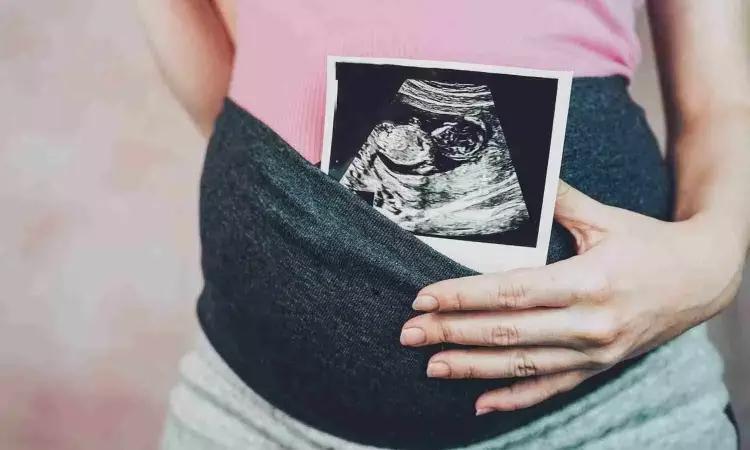- Home
- Medical news & Guidelines
- Anesthesiology
- Cardiology and CTVS
- Critical Care
- Dentistry
- Dermatology
- Diabetes and Endocrinology
- ENT
- Gastroenterology
- Medicine
- Nephrology
- Neurology
- Obstretics-Gynaecology
- Oncology
- Ophthalmology
- Orthopaedics
- Pediatrics-Neonatology
- Psychiatry
- Pulmonology
- Radiology
- Surgery
- Urology
- Laboratory Medicine
- Diet
- Nursing
- Paramedical
- Physiotherapy
- Health news
- Fact Check
- Bone Health Fact Check
- Brain Health Fact Check
- Cancer Related Fact Check
- Child Care Fact Check
- Dental and oral health fact check
- Diabetes and metabolic health fact check
- Diet and Nutrition Fact Check
- Eye and ENT Care Fact Check
- Fitness fact check
- Gut health fact check
- Heart health fact check
- Kidney health fact check
- Medical education fact check
- Men's health fact check
- Respiratory fact check
- Skin and hair care fact check
- Vaccine and Immunization fact check
- Women's health fact check
- AYUSH
- State News
- Andaman and Nicobar Islands
- Andhra Pradesh
- Arunachal Pradesh
- Assam
- Bihar
- Chandigarh
- Chattisgarh
- Dadra and Nagar Haveli
- Daman and Diu
- Delhi
- Goa
- Gujarat
- Haryana
- Himachal Pradesh
- Jammu & Kashmir
- Jharkhand
- Karnataka
- Kerala
- Ladakh
- Lakshadweep
- Madhya Pradesh
- Maharashtra
- Manipur
- Meghalaya
- Mizoram
- Nagaland
- Odisha
- Puducherry
- Punjab
- Rajasthan
- Sikkim
- Tamil Nadu
- Telangana
- Tripura
- Uttar Pradesh
- Uttrakhand
- West Bengal
- Medical Education
- Industry
COVID-19 infection tied to increased risk of hypertensive disorders of pregnancy and maternal mortality: JAMA

A recent cohort study highlights the complex effects of the COVID-19 pandemic on perinatal health by distinguishing the impacts of individual SARS-CoV-2 infection from broader societal changes during the pandemic period. The findings published in the Journal of American Medical Association offer better understanding of how the pandemic has influenced birth parent and infant health outcomes.
The study examined live births from April to December of each year and the categorized participants into three groups: 2020 birth parents with SARS-CoV-2 infection, 2020 birth parents without infection and 2019 prepandemic birth parents. This research investigated the outcomes including preterm birth (PTB), hypertensive disorders of pregnancy (HDP), gestational diabetes (GD) and severe maternal morbidity (SMM).
The key findings indicate that SARS-CoV-2 infection in 2020 birth parents was associated with increased risks of PTB, HDP and SMM. Also, the risk difference (RD) for PTB was 2.8% (95% CI, 2.1%-3.5%), for HDP 3.3% (95% CI, 2.4%-4.1%) and for SMM 2.3% (95% CI, 1.9%-2.7%) when compared to 2020 birth parents without the infection. This illuminates the significant health burdens imposed by the virus on pregnant individuals.
The broader COVID-19 pandemic period also had significant effects, separate from individual infections. When compared to the prepandemic group in 2019, 2020 birth parents without SARS-CoV-2 infection underwent a slight reduction in PTB rates (RD, −0.4% [−0.6% to −0.3%]), particularly spontaneous PTB. This reduction is believed to be influenced by socioenvironmental changes such as reduced commuting and lower exposure to non-COVID-19 infections. There was an increase in HDP (RD, 1.1% [95% CI, 0.9% to 1.2%]) and GD (RD, 0.9% [0.8%-1.1%]), likely due to pandemic-related stress and altered prenatal care practices.
These findings align with previous research documenting adverse perinatal outcomes associated with SARS-CoV-2 infection, but it uniquely separates these effects from those attributable to the pandemic environment. This differentiation provides valuable insights into the varied impacts on perinatal health and elucidates the need for targeted interventions.
The outcomes of the study suggest that the decrease in PTB during the pandemic may reflect beneficial lifestyle changes and reduced exposure to infections other than COVID-19. Also, the rise in HDP and GD could be tied to elevated stress levels and the limitations of remote prenatal care during lockdowns and social distancing measures. This research contributes significantly to the understanding of multifaceted impact of COVID-19 on perinatal health.
Source:
Jung, S., Liu, E. F., Goin, D. E., Rudolph, K. E., Mujahid, M. S., Dow, W. H., & Ahern, J. (2024). The COVID-19 Pandemic Period, SARS-CoV-2 Infection, and Perinatal Health. In JAMA Network Open (Vol. 7, Issue 5, p. e2410696). American Medical Association (AMA). https://doi.org/10.1001/jamanetworkopen.2024.10696
Neuroscience Masters graduate
Jacinthlyn Sylvia, a Neuroscience Master's graduate from Chennai has worked extensively in deciphering the neurobiology of cognition and motor control in aging. She also has spread-out exposure to Neurosurgery from her Bachelor’s. She is currently involved in active Neuro-Oncology research. She is an upcoming neuroscientist with a fiery passion for writing. Her news cover at Medical Dialogues feature recent discoveries and updates from the healthcare and biomedical research fields. She can be reached at editorial@medicaldialogues.in
Dr Kamal Kant Kohli-MBBS, DTCD- a chest specialist with more than 30 years of practice and a flair for writing clinical articles, Dr Kamal Kant Kohli joined Medical Dialogues as a Chief Editor of Medical News. Besides writing articles, as an editor, he proofreads and verifies all the medical content published on Medical Dialogues including those coming from journals, studies,medical conferences,guidelines etc. Email: drkohli@medicaldialogues.in. Contact no. 011-43720751


